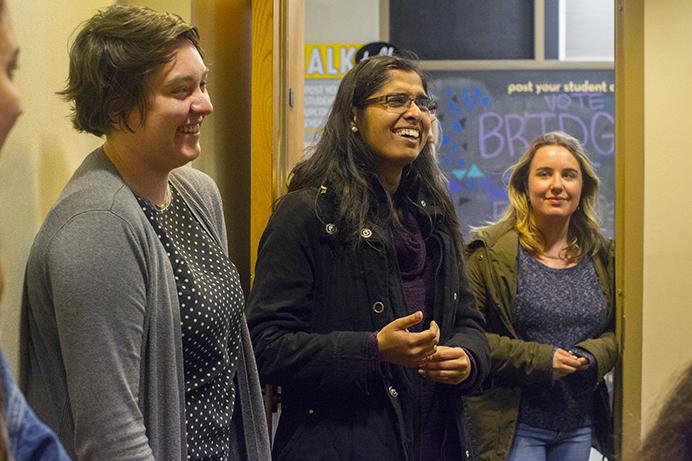By Natalie Betz
Vegans on a large Big Ten campus such as the University of Iowa’s can now find a new way to support each other, thanks to a new vegan organization.
UI juniors Srehita Kotla and Tara Bendre recently introduced the new Vegan Society to help fellow students want to learn about vegan diets.
The essence of the group is to allow conversations on various topics regarding veganism, especially the aspects that people don’t consider, such as decreasing the world’s environmental footprint and eliminating stigmas around vegans, said Kotla, who has only been a vegan for six months but a vegetarian her whole life.
Despite having experience starting a new student organization, Kotla said, she wanted assistance in creating the new vegan society.
That led to her reaching out to Bendre, who was a good resource for Kotla at the beginning of Kotla’s transition in learning how to maintain a vegan diet.
Bendre, who has been a vegan for around two years, said having similar people around her who are vegans is helpful, especially during the times when there are only few vegan substitutes. She wanted to create a group in Iowa City where vegans could support each other.
A vegan diet can have a big effect in lowering the world’s carbon footprint, and it has many nutritional benefits, said JoAnn Daehler-Miller, a dietitian at UI Student Health & Wellness.
“A vegan diet is low saturated fat and trans fat, which helps lower heart disease. It is also high in fiber, which helps a variety of health issues and prevents constipation,” she said. “A healthy vegan diet is made up fruits, veggies, beans, whole grains, and other plant-based foods that allow the immune system to recover more quickly.”
However, Daeler-Miller emphasized that veganism isn’t for everyone. She said there have been students who have wanted to try a vegan diet but were allergic to nuts and disliked beans, so it wouldn’t be as healthy for them to be a vegan.
“If anyone does want to become a vegan, it’s important to encourage people to access resources so that they become attentive in order to receive all the nutrients they need,” she said.
Besides providing support for other vegans, Kotla said, she would also like to organize panels, talks, and other discussion-based events, such as informative dinners with environmental-science faculty to discuss how a vegan diet could decrease the world’s environmental footprint.
Bendre said members want to collaborate with the Trumpet Blossom Café to raise funds for the farm sanctuary in Marengo and organize group lunches at the vegan restaurant.
Additionally, they plan to host cooking demonstrations to help people learn how to cook vegan meals, as well as have video showings at box theaters and other group-focused events, she noted.
“We said straight-up that all people are welcome; we really want to promote inclusivity,” Bendre said. “We are not taking an activist approach to the club. We don’t want to encourage people to become vegan, we want to talk about what veganism is. We want to build a community and provide resources.”



